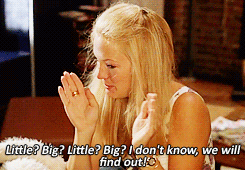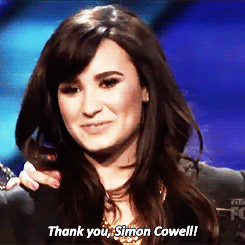 Let’s not lose them before we hook’em
Let’s not lose them before we hook’em
Before I decided to self-publish, like any other writer-wanna-be I researched literary agents. On average, most preferred an outstanding query letter and the first 5 to 10 pages of your polished, glowing like the last lightning bug, manuscript. Those pages better cause the agent to miss their stop on the subway and compel them to contact at least five publishing houses because they are reading the next big thing. This may be a tab bit of an exaggeration but it sure seemed that way years ago when I was dating around the agent scene (I wasn’t into it much, only contacted two agents). The point is, that I kept running across this 5-10 pages requirement. Based only on a few pages–not even a full chapter, agents decided if a project was right for them.
For a new author this pressure is intimidating as all get-out—harder than trying out for American Idol. Most of the time they let the contestant finish their song. Writers do not get that luxury, many agents stop reading in the first paragraph if they spot problems.
I attended a writers’ conference that held a Gong Show for manuscripts. The host would read a manuscript and agents gonged when they lost interest. Out of 40 manuscripts only 1 made it through an entire page. I understand why they take this approach because the average reader wants to fall for a story immediately.
I get it, reading a novel takes commitment, time–it’s like starting a relationship. I jotted down feedback from this conference on what not to do, because in many ways agents represent the reader. And in real relationship fashion I’m going to share writing tips that also apply to dating.

Kate says it all
- Explicit Intro: On average, talking about sex when first meeting someone isn’t a good idea—definitely off-putting. Opening a novel with an explicit sex scene is a big no-no as well. Now, with Erotica, the rules may be different but I image the reader isn’t thrown into a steamy bedroom scene in the first line.
- Showing Off: Ok, raise your hands if you like dating a show-off? Huh, I don’t see any hands. Unless you’re writing for writers or masters of the English language, the reader just wants a good story. To be entertained. Why use a twenty-dollar word when a five-dollar one will work?
- TMI (too much information): Sharing all your business on the first date is an easy way to lose the interest of a potential partner. Where’s the mystery? What’s there to wonder about? It’s nice having to work a little when getting to know someone. Same applies to writing. Information dumping in the beginning doesn’t create that I-can’t-wait-to-see-what-happens response. Actually, it does the opposite–a real snooze-fest!
- Lack of Authenticity: No one can be you better than you. It’s really awkward being on a date when the person isn’t being themselves. Be true to the character and story by writing realistically. And it’s totally fine to do it your own way.
- Pacing: There’s a natural flow to good conversation just like there’s a natural flow to good storytelling. A good balance between summary and scene makes for enjoyable reading!
- Hot-Mess: Showing up for a first date dirty and looking a hot-mess, will not go over well–unless it’s a rock climbing date. Being prepared and put together helps people to take you seriously. With a novel, having a ton of grammatical or spelling mishaps in the first few pages is unacceptable.
As a writer it’s important to know what makes readers lose interest in the first 10 pages, and not do them. And there’s many more but six is plenty. To be honest, readers can lose interest with a perfect manuscript just because they have options.
America, at least, is full of the OEEB (Overly Entertained and Easily Bored). Scrolling through Netflix, trying to find the best, most suitable entertainment for my mood, can take more time than just watching a Walking Dead episode. My Kindle is a small library—and that’s the norm for young adults. But I still think it’s important to watch and read new stuff, even stuff I don’t think I’ll like.
I can’t tell you how many books, televisions shows, movies, that in the beginning turned me off. I had good reasons too: slow-paced books, cheesy movies, irritating characters. Then, after a while, I got hooked. At some point, I forgave the flaws and felt captivated by the story, the characters changing, or the moral dilemma.
Growing up I wouldn’t touch a fantasy novel, they just seemed weird to me. Because of a neighbor who shoved a fantasy novel in my hand I began to read my first fantasy/sci-fi series. The first chapter—I wasn’t feeling it. After the third chapter or so, I couldn’t put the book down.
These are just a few books/shows/movies that won me over.
- Harry Potter series
- Supernatural
- Memoirs of a Geisha
- Walking Dead
- Friday Night Lights
- Les Miserable
- Inception
So, this is my plea to the Reader. Novels aren’t perfect because imperfect people write them. So, if the pacing seems off or it has fancy words or it’s a genre not of your liking, basically if it doesn’t’t hook you in the first 10 pages, keep reading. Most people are not a fan of insta-love, it’s always better when the characters grow and fall in love over time.
I take the same approach reading now. I don’t have to love a novel right away. I give it time to grow on me because I might just fall in love during the process. And finding things I love is always worth the journey it took to find it.
 Finding a book I love–True Fandom!
Finding a book I love–True Fandom!
Photo/Gif Credit: www.huffingtonpost.com, bysandradi.wordpress.com, giphy.com
Happy St. Patrick’s Day!!





